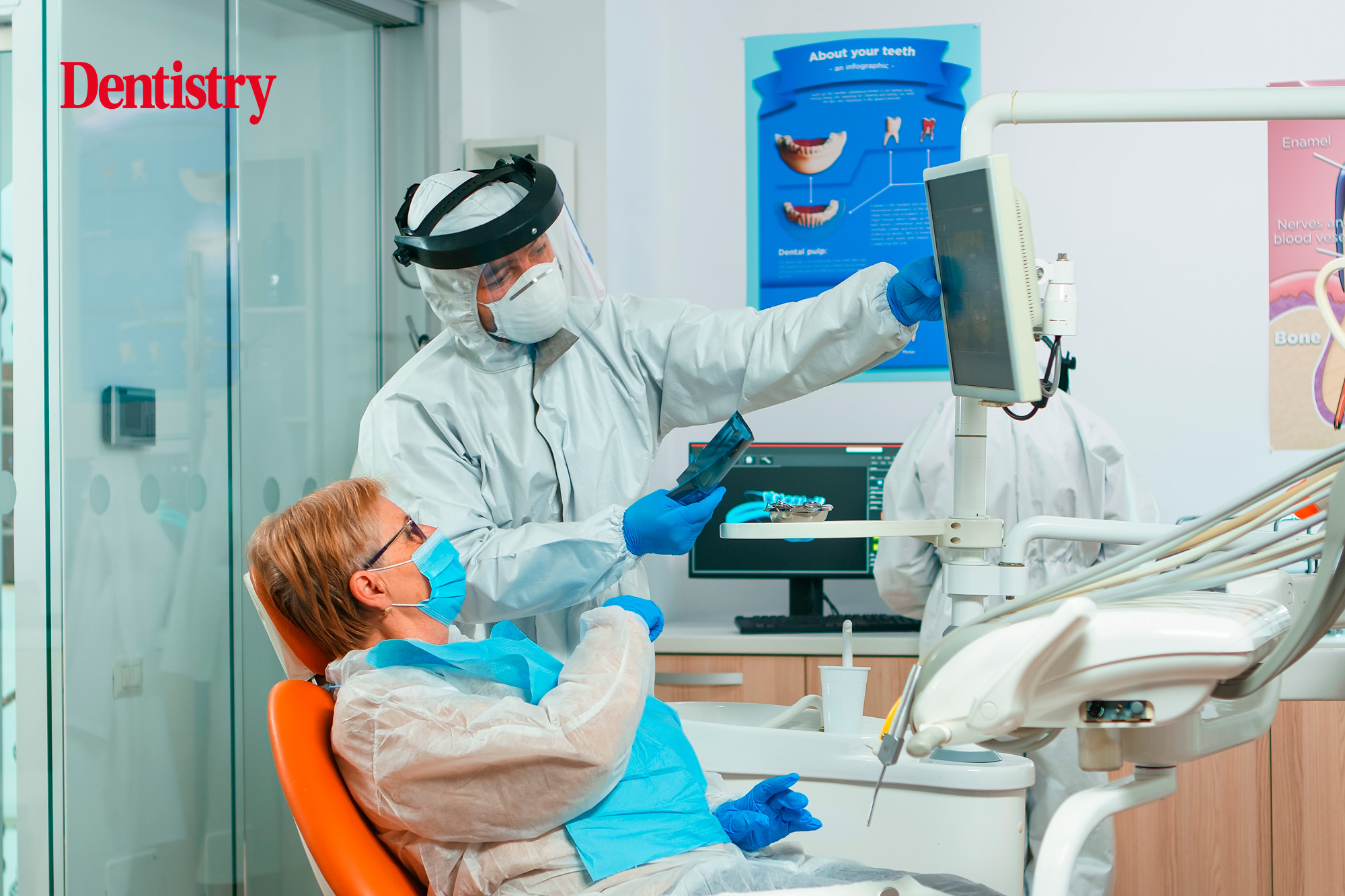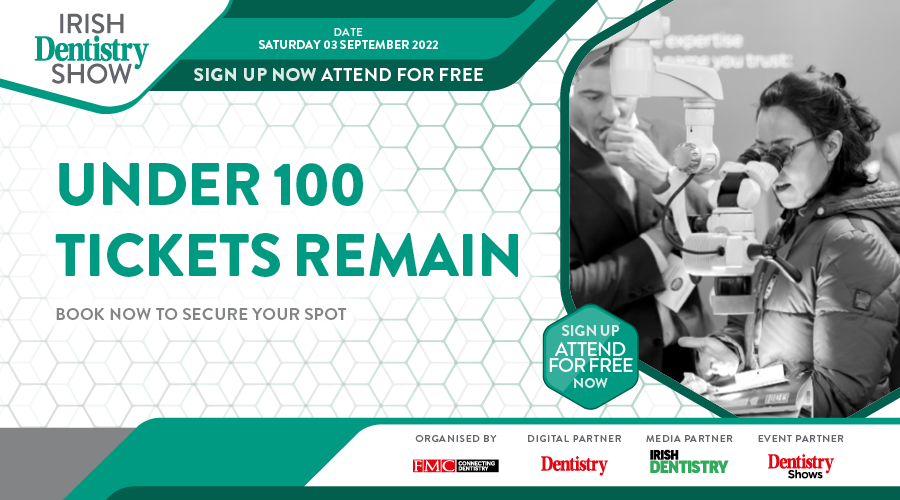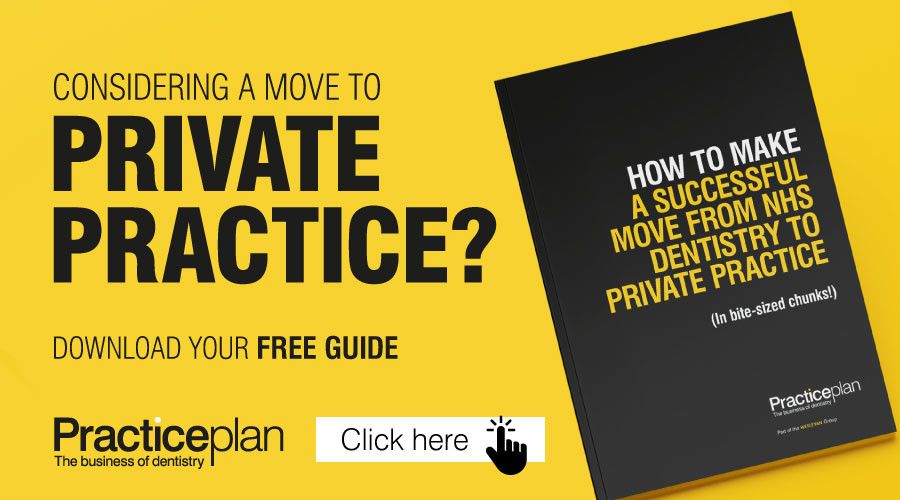
We look back on how dentistry adapted to the Covid-19 pandemic and what we’ve learned 12 months on from Covid freedom day.
It’s a year on since Prime Minister Boris Johnson announced the end of all Covid-19 lockdown restrictions.
Despite cases surging again, vaccination levels and general immunity amongst the population means death rates have remained relatively low.
Dentistry, however, lagged behind returning to pre-pandemic levels.
NHS targets only returned to 100% at the start of this financial year – despite a huge backlog of waiting patients.
And an increase in PPE seems here to stay.
Twelve months on since Covid freedom day, we reached out to NHS England and Eddie Crouch to hear how things have changed and plans for the future.
It’s a year on since Covid freedom day – where is NHS dentistry in relation to pre-pandemic levels?
NHS England would not provide a response to this.
It’s a year on since Covid freedom day – are we back to where we were pre-pandemic?
Eddie Crouch (EC): In regard to Covid freedom day, I don’t think it made a significant difference, even 12 months ago.
I think many colleagues found it incredibly difficult, even with the relaxation, to get anywhere near the levels of patient care that they were doing.
Certainly, throughout last summer, it was very difficult for them. Then we had another wave of the pandemic with the Omicron variant around Christmas time, when again the practices really struggled to hit the NHS thresholds set.
We’re certainly not back to any sense of normality.
Even now, many of my colleagues have been completely exhausted trying to hit a target for the end of March.
I wouldn’t be surprised if many practices now aren’t delivering the same levels of care they were a year ago. Many staff are owed holiday, many dentists haven’t taken any time off because of the pressures put on them to deal with the backlog.
And I suspect many colleagues will be taking some rest at the moment, so we’re not back to normality.
Even with the changes that came in, or will be coming in with further relaxation of IPC guidance, I think getting back to what we did pre-pandemic isn’t going to happen in the short term at all.
How did the NHS support dentists during the pandemic?
NHS England would not provide a response to this.
Do we want to get back to where we were pre-pandemic?
EC: During the pandemic, a lot of colleagues have re-evaluated what they were doing even before the pandemic.
For example, working on a treadmill where there are huge pressures with targets.
Many dentists and teams saw that, while it was difficult treating patients with the high levels of PPE, they had more time with their patients, and more satisfaction from the care that they were able to offer.
I think a lot of colleagues have re-evaluated whether they wanted to go back to a treadmill system that in the long term isn’t sustainable for them.
And I think it’s pretty reflective that so many colleagues aren’t seeing their future within an NHS system that doesn’t appear to be changing with a return to a high throughput of patients in dental practices.
We ran a short BDA survey but received over 2,000 replies, which is probably the highest reply rate we’ve had throughout the pandemic in any of our short surveys.
A huge number of the respondents were saying that even if they weren’t leaving the NHS, they were reducing the amount of NHS work they were doing.
And the figures that we saw of 3,000 dentists leaving the NHS in the last two years really aren’t good for the future of NHS dentistry.
But it’s probably not the true picture; while 3,000 have left, many more are significantly reducing their working week providing NHS care.

In hindsight, what more could have been done?
NHS England would not provide a response to this.
How did the BDA support dentists during the pandemic?
EC: Across the UK, I think without the BDA negotiating for colleagues, the NHS side of support wouldn’t have been as sufficient as it turned out to be.
In England, Scotland, Northern Ireland and Wales, all of the BDA committees and teams managed to secure sustainability for NHS dental practices.
I think what we were very unsuccessful on was getting any support for private practices.
We argued very hard for that.
But apart from the normal schemes that were in place for any industry, there was nothing further to sustain private practice.
While private practices bounced back pretty well from that position, they were in a very difficult position throughout the pandemic.
I think the BDA provided a reliable source of information for people at a time when there was huge confusion.
And we opened up our website to people who weren’t members so that they could access reliable information.
We had a daily update page that received huge amounts of traffic. Here, we saw a rise in the number of BDA members who came looking for reliable support and advice.
What lessons has the NHS learned going forward?
NHS England would not provide a response to this.
What lasting impacts has the pandemic had?
EC: It’s had a massive effect.
We’ve lost 40 million appointments, so a whole year’s worth of activity in the NHS throughout those two years.
We are seeing patients now who haven’t been seen for a considerable amount of time.
They probably have the highest needs that they’ve had in decades.
Patients are presenting to colleagues with lots of treatment needs.
It’s not simply the number of patients, it’s the type of patients now that practices are seeing.
I think it’s also had an effect on the workforce.
Sadly, quite a lot of auxiliary staff have found it incredibly difficult working in high levels of PPE.
Dental nurses we’ve lost in considerable amounts.
So, it’s not only dentists that have left the profession or the NHS, it’s dental nurses, hygienists, and therapists, too.
Sadly, we’ve lost a significant amount of dental technicians because their businesses were very badly affected and quite a lot of laboratories have gone through the wall.
The pandemic has had a massive effect on dental provision for patients, but also across the whole of the workforce.
Following the pandemic, it appears that a high number of dentists are leaving NHS dentistry – what’s the NHS’s view on this and how are you going to stop this exodus?
NHS England would not provide a response to this.
Where are we heading now, after Covid freedom?
EC: We’re heading into a situation where I think NHS dentistry is becoming urgent for the government to support.
I suspect if the urgency isn’t there, more of my colleagues will leave the NHS in the next 12 months.
We’re reaching a point in the mid-summer where quite a lot of NHS dental practices will have clawback of funding because they haven’t hit the thresholds throughout the last financial year.
That will have a detrimental and destabilising effect on some practices as well.
Patients have probably started to realise that a comprehensive dental service isn’t there for them.
Certainly, with the messaging that the BDA has managed to get out there in the media, there appears to be a change from blaming dentists for the problems that exist within the NHS.
There is a bigger understanding now from patients on how bad the contractual arrangements are across the UK and why dentists are making the decisions they are making.
How should the government/NHS handle it differently if a pandemic were to happen again? Are there any good examples out there?
EC: I think in Wales, Northern Ireland and Scotland, there was good support for dental practices with capital spending, which didn’t happen in England.
So, in Wales, Northern Ireland and Scotland, they got additional resources to buy handpieces, allowing them to treat patients differently.
They were given money to put ventilations and various things into their practices, which better supported them.
I think it’s pretty clear that the government wasn’t ready for the pandemic.
The supply of PPE was insufficient for many services to be fully operational and they weren’t prepared.
There was a lot of catch up, and one hopes that in the long term, lessons would be learned on the effects of the pandemic.
But based on what continues to happen, you do worry over the planning aspect.
The vaccination rollout was one of the things that the government said was a huge success, and it was.
But it was after some very, very serious failings which left dentistry highly exposed.
Is NHS Dentistry going to change given the significant flow of dentists to private treatment?
NHS England would not provide a response to this.
What should we take from the pandemic to shape the future of dentistry post Covid freedom day?
EC: The population has realised the value of dentistry because there are so many people out there that have really struggled for access.
Many people now realise that what we do as a profession is a vital part of the health service.
So, I think that is really important. I also think many patients saw what the world would look like without dentistry – it didn’t look very good.
The profession has worked incredibly well.
Most dental practices have adapted to a very changing landscape fantastically well.
I always knew dental practices were safe places for patients to go, but the way that colleagues up and down the UK came together and actually altered their daily working lives to ensure that they could continue to provide safe care for patients was phenomenal.
It makes you very proud to be part of a profession that has adapted that way.
Follow fmc-stage.thinkdemo.co.uk on Instagram to keep up with all the latest dental news and trends.







